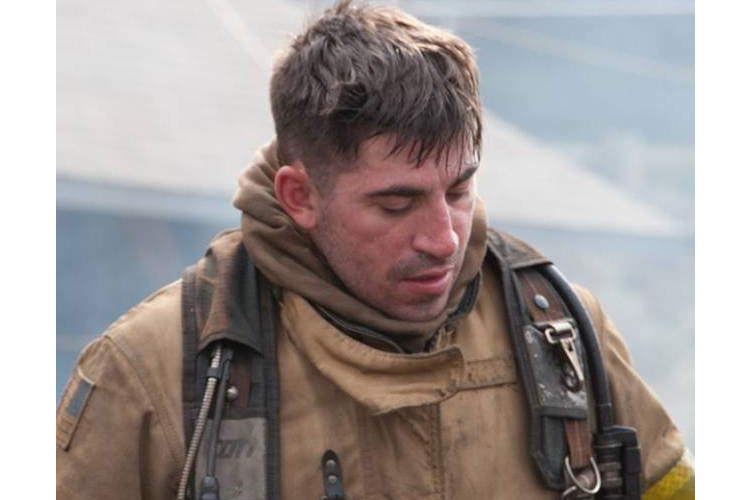

By Dustin Martinez
“The fire service and organizations should be committed in all avenues to execute searches when searchability allows. We should understand that being educated and proactive can mitigate some of the risks we will encounter. Finally, accountability of techniques, information, and execution are not an attack or a provocation; they are quality control to provide the best possible outcome for the citizen on the next response.” This is the take-home message Lieutenant Dustin Martinez of Cobb County (GA) Fire and Emergency Service says he would like attendees of his class, “The Search Reformation,” at FDIC International on Friday, April 12, 10:30 a.m.-12:15 p.m. to share with their departments.
Martinez explains why he believes the subject of “search” needs to be revisited and how he defines an “aggressive search mindset”: a three-prong commitment from the organization–the administration, the Training Division, and the field. The administration has to make sure that all members know what the primary mission on the fireground is. Most organizations say their first priority is life safety. Unfortunately, it seems at times that this is interpreted as, we will take no risks, calculated or not, that will put the safety of the fire personnel in jeopardy. In my opinion and according to what I believe are civilian expectations, life safety applies to the citizen as 1A and the firefighters as 1B. Administration should confirm the priority is to protect and remove endangered occupants, followed very closely by the life safety of civilians and firefighters.
MORE: Our Equation: The Human Factor on the Fireground | Dustin Martinez: Our Reformation
The Training Division needs to constantly evaluate the field level execution; note the deficiencies in all the components of the search program (size-up, decision making, ladders, search techniques); and work to improve them. It should follow up with a quality-control aspect to make sure that the product being delivered matches administration’s mission.
Finally, and most critically, the field level has to execute. If this level has the support of the other two levels in the organization, then failure of the executional aspect falls on the individual crews. If they don’t have the support, you will see pockets of motivation and competency, and the inconsistent mindset will impact the public.
Major changes have affected search in recent years. One is firefighters’ accessibility of information. The Internet has given us the ability to communicate with brothers and sisters across the globe and to see what is working and what isn’t, and we have the ability for feedback almost instantly. Individuals can share videos, insights, lessons learned, and practical experiences that can make an impact from department to department. Combine that with the UL studies that provided some enhancement or confirmation of concepts affecting fire behavior, ventilation, water application, and interior conditions that impact the searchability aspect of structures. Although a lot of this information isn’t new, it certainly adds validity to what many individuals (including some of my mentors– Sean Gray, Kevin Lewis, among others) have been pushing since I began my career. We have also seen the use of Cyanokits, which are allowing our EMS providers to give more advanced and preventative care for fire victims to improve their outcomes.
RELATED TRAINING: Residential Search: Applying the Principles | Search and Rescue Above the Fire
Video: Search with the Water Can
Why I chose this topic for my FDIC class. My department changed its search procedures after my recruit school search and rescue experiences. As I saw more advanced techniques being implemented, I realized that my search training was inadequate relative to civilian expectations and I found myself wanting to constantly know and learn more.
These pockets of motivated individuals referred to above were spreading the information for improving search operations and reported an upward trend in civilian rescues. The feedback we were getting was that this improved training curriculum was working. Personnel actions were based on muscle memory and condition-reaction. They were defaulting to their training, and the aggressive and educated mindset was winning on and off the fireground. This caused me to dive in; my crew and I were actively involved in some civilian rescues that further solidified that what we were doing was working.
Departments must address this issue proactively. One thing missing in the search world is qualitative and quantitative data that supports or disproves the search techniques. Just as the positive qualities of social media and technology allow for information sharing, the negative is that not all information is correct, vetted, or beneficial.
The Firefighter Rescue Survey (FirefighterRescueSurvey.com) is attempting to provide statistics that provide more insight than just civilian death totals. It tracks which search techniques are g successful, conditions and time frames, and survival outcomes. This information isn’t new; it is more along the lines of data confirmation of previous instructions. The problem is that submissions are voluntary, so the resource database is relatively small compared to the actual fire numbers. If reporting systems, such as NFIRS, would require these answers, we would have a larger database from which to evaluate our theories.
Departments need to embrace the information exchange the Internet provides. They need to embrace the use of helmet cameras or dash cameras that allow for internal evaluation of the speed and efficiency of searches being performed. And, departments and individuals have to be willing to share and talk about what they learned from both successful and unsuccessful rescues. They must understand that when firefighters use this outreach and information to confirm or disprove previous concepts, it isn’t an attack on the individual but more along the lines of a win for the citizen.

